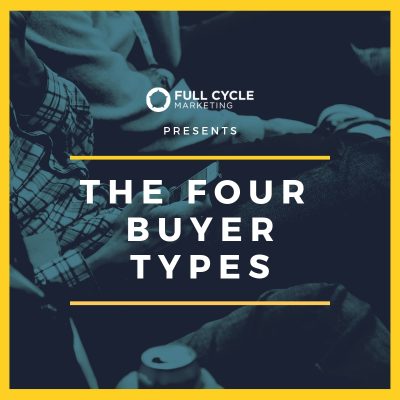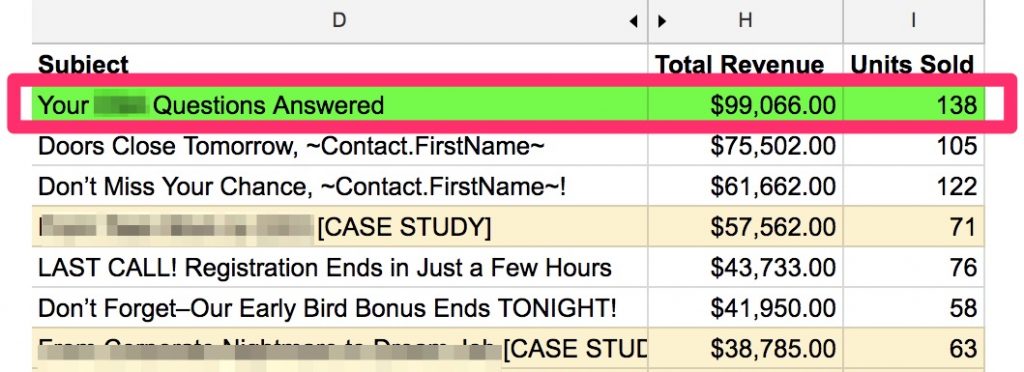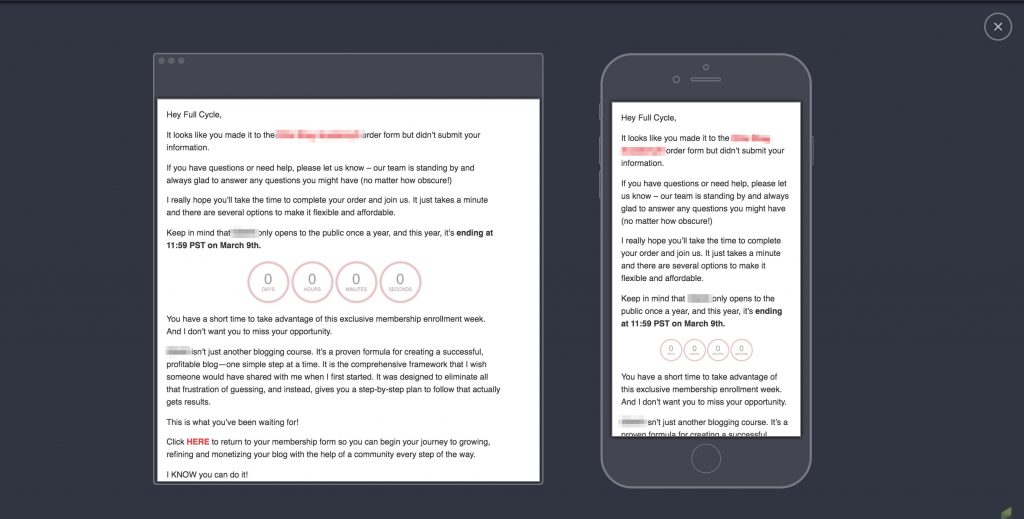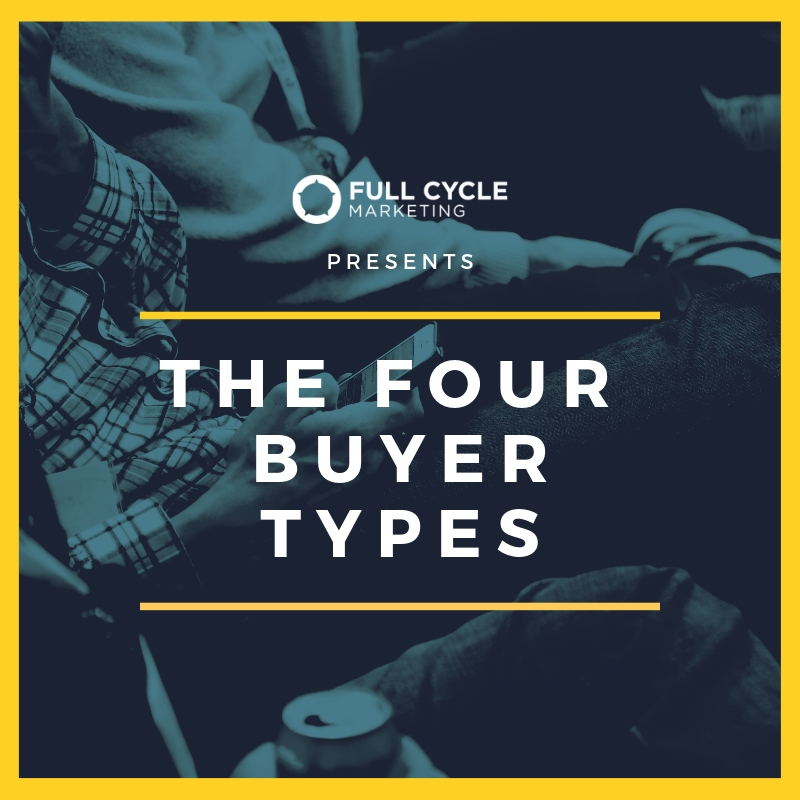 There are four basic types of consumers, and knowing how to market to each of them can lead to incredible results. In this series (click here to read the overview), we’ll take a deep dive into each type, starting with methodicals.
There are four basic types of consumers, and knowing how to market to each of them can lead to incredible results. In this series (click here to read the overview), we’ll take a deep dive into each type, starting with methodicals.
10 Ways to Appeal to Logic-Based Buyers
Imagine you’re in the market for a new car.
Do you go to the nearest dealership on a whim, look for something that catches your eye, and then drive off the lot in a new ride?
Or do you spend weeks checking Consumer Reports and doing online research about Blue Book values and gas mileage before you even consider looking for a dealership that’ll provide the best deal?
If that’s the case, there’s a good chance you’re what’s known as a METHODICAL shopper, and you’d be far from alone.
According to a recent study conducted by GE Capital Retail Bank (via Business Wire), 81% of all shoppers research products online before making a purchase. But a little more than half of those consumers fall into the category of methodical shoppers.
As conversion expert Jeremy Smith points out on JeremySaid.com, methodical shoppers don’t make a purchase decision without first learning everything there is to know about what they’re thinking of buying.
“[A methodical buyer] is a detective, an investigator, a learner, a searcher,” Smith said. “The methodical buyer digs into warranty information, coupon redemption, access to support, the fine print on return policies, and everything else.”
For a methodical buyer, data makes or breaks their decision to buy. While some buyer types get a thrill from the act of making a purchase, methodical buyers derive pleasure from research.
They’re also very slow to make decisions, they review every piece of available information, and they analyze cost versus value. They need to be 100% confident in their choice, and they’re looking for THE perfect option.
Luckily, there are concrete ways to appeal to this type of consumer on your website and in your sales pages, emails, and other marketing materials.
1. Use Hard Numbers.
Methodical buyers are all about data. So give it to them. Don’t just promise that your product or service is effective. Use statistics, sales figures, and customer approval ratings to prove it. The more numbers you have to back you up, the better.
2. Establish Your Authority.
Methodical buyers can sniff out if you’re not 100% behind your product. Establish your authority by positioning yourself or your brand as the expert or guide. You’ve stood in their shows, have overcome the problem, and how have the solution they need.
Some ways to establish your credibility include:
- If you have a story of personal transformation as it relates to you product, share. Include photos demonstrating a compelling before & after.
- If you have a staff, including headshots, titles and bios if applicable.
- An “about us” rich with certifications, accomplishments or awards
- “As featured in” logos from prominent media outlets in your field that have reviewed or approved your products
- Similarly, “Trusted by” logos from prominent past and current clients or customers (with permission)
- Social proof — how many people have used your product or are talking about it on social media?
3. Include an FAQ.
“Frequently asked questions” are the stuff methodicals’ dreams are made of. But in marketing, FAQ aren’t just to save you time answering common questions, they’re intentionally written to overcome your customers’ objections to the purchase.
The first question should always restate the offer (what is this program or product?). Questions follow a logical sequence and should address and resolve any doubt in the buyers’ mind. The last question should reiterate some type of risk reversal (usually a money-back guarantee).
Important to note: FAQ can live on your website or sales page, but they also make great email content. In a recent launch, we added an FAQ email, and it was the highest-revenue generating email out of the entire launch by nearly 25%.
4. Give Them a Way to Ask Questions.
If your product or service as a high price tag, it can be hard to make a decision based on marketing material alone — no matter how appealing. Account for this challenge by integrating live chat software, like Intercom.
We did this with a recent launch for a client, and it made a huge difference. Users interested in purchasing were able to ask questions in real-time and receive a response from a real person with in-depth knowledge of the product, which was in this case, an online course.
“This was a fantastic idea. It allowed us to get to customers way faster…and I believe that alone helped secure more sales…I think it helped us sell better to people on the fence in a way that could only be done in an instant messaging, immediate response environment like this.” –Amanda Smith, Elite Blog Academy Manager
If live chat isn’t an option, at the very least, include a customer service phone number and link to contact form on your sales page and in the P.S. of your emails.
5. Outline Your Process & What’s Included.
Methodical buyers want to know what your product is about and exactly what they get with it. Include a summary of the program including a string of benefit-rich bullets and outline your bonuses in detail.
Be specific with your instructions on how to purchase the product. Pricing tables can help methodicals compare tiers and identify which is right for them. Explain exactly what will happen when they press “submit” or “Buy Now.” And reassure and affirm your potential customer for the good decision they’re about to make.
6. Remove Risk.
It can feel vulnerable to have a generous return or guarantee policy. But in the world of ecommerce, it’s imperative to reduce or remove the risk for the buyer, especially when it comes to digital products. Typically, this comes in the form of a money-back guarantee within a certain time period, like 30 days. (You can reduce your risk of refund by creating a solid onboarding process.)
7. Include Trust Symbols.
Use credit card logos & secure site symbols to signal your sales page can be trusted. Make sure to include copyright info and a link to your Privacy Policy and Terms & Conditions. These should be standard operating procedures for reputable online businesses, so if these links or badges or missing, it could stir up insecurity in the mind of the potential buyer.
8. Have a Secure Order Form.
If your customers are purchasing your products directly from your website, it’s imperative to use a secure order form and let your shoppers know it. It’ll give methodical buyers more confidence when they’re about to pull out their credit cards.

Example: An order form with trust symbols: money-back guarantee, privacy policy, secure transaction and customer service contact
9. Reward Them with Fine Print.
You might assume that nobody reads all of your product and offer legalese, but methodical buyers probably do. (In fact, this is a good place to infuse some personality into your copy in a way that rewards methodicals for their diligence!) Make sure that all of the details about your product, service, and business are in clear language, and don’t hide anything about additional fees or warranty expiration dates.
10. Give Them Time
Since methodical buyers are generally slower to purchase, give them ample time to make their decision but not so much time you lose their attention.
Most major decisions require a decision-making process that averages 79 days, according to Retailing Today.
It’s not just time methodical buyers need, it’s information. Just be sure it’s all legitimate. You should also avoid hyperbolic claims that make you seem too good to be true.
“They will spend most of their buying process in information gathering and evaluation mode,” Pamela Hudadoff, a senior marketing professional explains on MarketSense. “Sales interactions should focus on helping them obtain the information they need to move forward.”
Drip out information to them via email consistently, and provide an “abandoned cart” email to follow up in case they weren’t ready to purchase during the first pass.
In a recent launch, our two-email abandoned cart campaign generated 11% of total sales for the week with a 5% conversion rate.
To a methodical buyer, it’s not about what you say. It’s about what you can prove. They need to trust you, trust in your product, and trust that it’s the best possible option for them.
We’d also be happy to talk to you about integrating this information into your own marketing plan. Contact us and schedule a free consultation.
You May Also Like:
The 4 Buyer Types: Understanding What Drives Your Customers to Purchase




